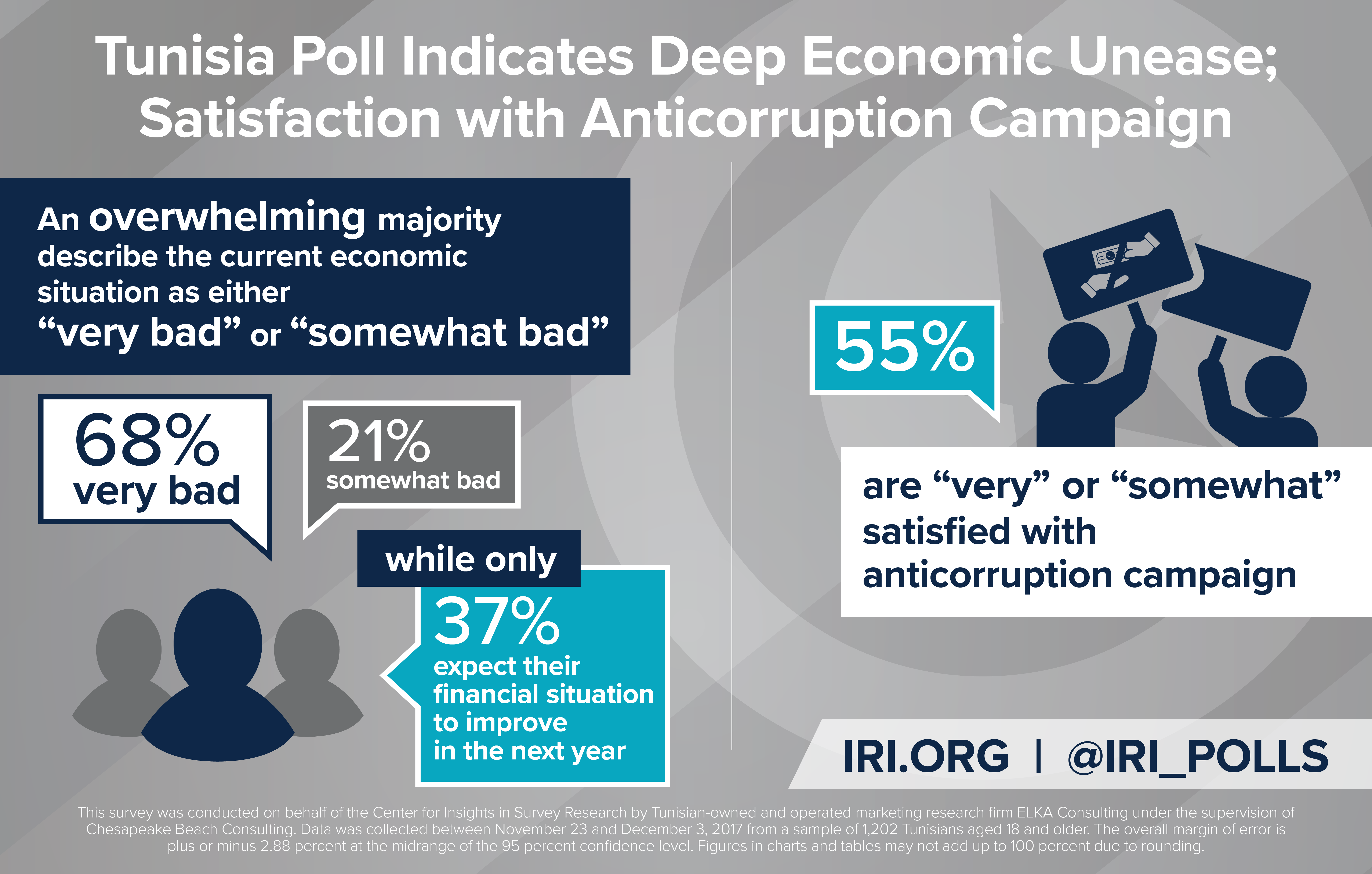Tunisia Poll Confirms Deep Economic Unease; Satisfaction with Anticorruption Campaign
 Tunis, Tunisia—A new poll by the International Republican Institute’s (IRI) Center for Insights in Survey Research indicates deep economic unease but popular satisfaction with the progress of the government’s anticorruption campaign.
Tunis, Tunisia—A new poll by the International Republican Institute’s (IRI) Center for Insights in Survey Research indicates deep economic unease but popular satisfaction with the progress of the government’s anticorruption campaign.
“The ongoing protests against the government’s austerity measures reinforce the longstanding trend of dissatisfaction evident in our polling,” said IRI Vice President for Programs Scott Mastic. “However, the public does appear to be broadly supportive of the government’s anticorruption campaign—presenting the government with an important opportunity to address a key concern that has added to public frustrations since the 2011 revolution. As Tunisians mark the seventh anniversary of the overthrow of authoritarianism, it is crucial that the government continue to press for meaningful reforms that address systemic corruption and enhance the country’s economic prospects.”
An overwhelming majority describe the current economic situation as either “very bad” (68 percent) or “somewhat bad” (21 percent), while only 37 percent think that the financial situation of their household will improve in the next year. More than 80 percent also think that Tunisia is headed in the wrong direction.
More than half of Tunisians are either “very satisfied” (29 percent) or “somewhat satisfied” (26 percent) with the “war on corruption” announced by Prime Minister Chahed in the spring of 2017. The proportion of Tunisians who think the government is combatting corruption effectively improved since IRI’s most recent nationwide poll: the number who feel that the government is doing a “somewhat good” job at fighting corruption increased by 11 points (rising from 27 percent in April 2017 to 38 percent), and the number who think the government is doing a “very good” job rose from seven to 16 percent.
The survey also indicates a generally positive perception of the capacity of municipal and regional governments to address the needs of citizens. Seventy-two percent of Tunisians “absolutely” or “mainly” agree that empowering democratically-elected municipal and regional councils to make funding decisions will lead to better services. Sixty-eight percent believe that such an arrangement would lead to better communication between government and citizens and 64 percent think it will curb corruption.
Methodology
This survey was conducted on behalf of the Center for Insights in Survey Research by Tunisian-owned and operated marketing research firm ELKA Consulting under the supervision of Chesapeake Beach Consulting. Data was collected between November 23 and December 3, 2017 from a sample of 1,202 Tunisians aged 18 and older. The overall margin of error is plus or minus 2.88 percent at the midrange of the 95 percent confidence level. Figures in charts and tables may not add up to 100 percent due to rounding.
Click here to read the survey in French.
Top